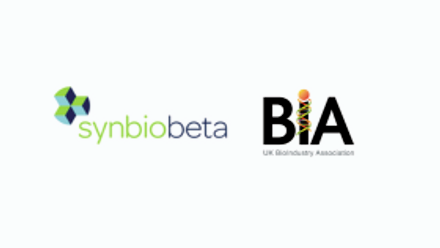CEO Update - 13 January 2025
The GSK deal, which includes another $150 million in milestone payments, gives them an experimental treatment for a rare gastrointestinal cancer, as it seeks to build up its cancer business. Verdiva’s raise demonstrates the confidence top-tier global investors have in UK management and for the UK as a global hub for innovative businesses. Their plan to develop next-generation obesity and cardiometabolic therapies is setting the pace in addressing major unmet medical needs. The development of next-generation medicines in this area is something that current UK media and I fear the NHS are missing in their thinking. There appears to be a lack of recognition of the transformative potential these therapies hold—not just in their utility but in their capacity to reshape healthcare delivery over the next decade. This is a missed opportunity to align with groundbreaking advancements that could revolutionize patient outcomes and healthcare systems alike.
UK government rolls out AI plan
As I write the UK government is setting out its plans to turbocharge AI as a driver of public service reform and economic growth. Much of the debate rightly focuses on the economic and health opportunities that exist both for NHS reform and transforming drug discovery, development and deployment. Tech entrepreneur Matt Clifford has outlined an AI action plan featuring 50 recommendations, all of which have been embraced by the government. This is fantastic news for our sector, as it illustrates the government’s commitment to harnessing AI's transformative potential for economic growth. At BIA, we're actively engaging with the opportunities AI presents in health data as the Industrial Strategy and life sciences plans evolve. There’s enormous potential for UK growth if the government makes bold, strategic decisions to enable both health and wealth - empowering UK scale-ups to deliver next-generation products and services. Stay tuned; we’ll have more to share on this in the coming weeks.
New MHRA Chair starts role and outlines priorities
Professor Anthony Harnden, the new Chair of the Medicines and Healthcare products Regulatory Agency (MHRA), has now started his role and set out the priorities for his first 100 days. He plans to engage actively with staff and partner organizations, listening to their insights and perspectives to build a comprehensive understanding of how best to advance the MHRA’s strategic direction. His focus is on ensuring the UK remains a global centre of excellence in life sciences, always prioritizing the best interests of patients and the public. Anthony will be particularly focused on helping the MHRA protect patient safety through robust safety surveillance systems, embrace risk-proportionate regulation, and foster an inclusive workplace where people flourish. We look forward to helping him in his new role. Please find more details, including his welcoming video.
FDA issues new guidance on AI drug development
As the MHRA starts its new era and the UK government commits to face the AI challenge, it’s interesting to see The FDA have just released a 23-page draft on a framework for ensuring reliable AI outputs, integrating diverse data sources, and improving trial design. This is all while reducing reliance on animal studies. I’m sure the UK will want to be part of this ongoing and emerging debate at the intersection of AI and regulation – and one which will move rapidly this year. We will plug members in at all levels to the policy debate.
UK Biosecurity Leadership Council evolves to become the Engineering Biology Responsible Innovation Advisory Panel (RIAP)
Last week, I had the privilege of attending the last Biosecurity Leadership Council meeting under its current moniker alongside Science Minister Patrick Vallance. The Council is being renamed to better align with its core focus and will now be known as the Engineering Biology Responsible Innovation Advisory Panel (RIAP). We remain committed to playing an active role on behalf of the sector as this transition takes place. The group is not the same as the Engineering Biology Advisory Panel which is the expert group that supports engineering biology policy work undertaken by DSIT and its collaborating departments and will continue, but the two work together and we have BIA membership and representation on both. Do check out this blog about the latest government guidance on DNA synthesis and this fascinating piece on public confidence in engineering biology.
Technology adoption review - Submit your evidence
Dave Smith, the National Technology Advisor to The Department for Science, Innovation and Technology (DSIT) is calling for evidence for his technology adoption review, commissioned by the Chancellor, and is visiting life science businesses in Cambridge this week. As ever, there is a short timeframe and his goal is to gather insights into the key barriers preventing technology adoption within the eight Industrial Strategy sectors. The review is taking direct submissions.
We’ll do a full summary of UK JP Morgan Healthcare Week news next week, until then I wish everyone luck in deal-making.






